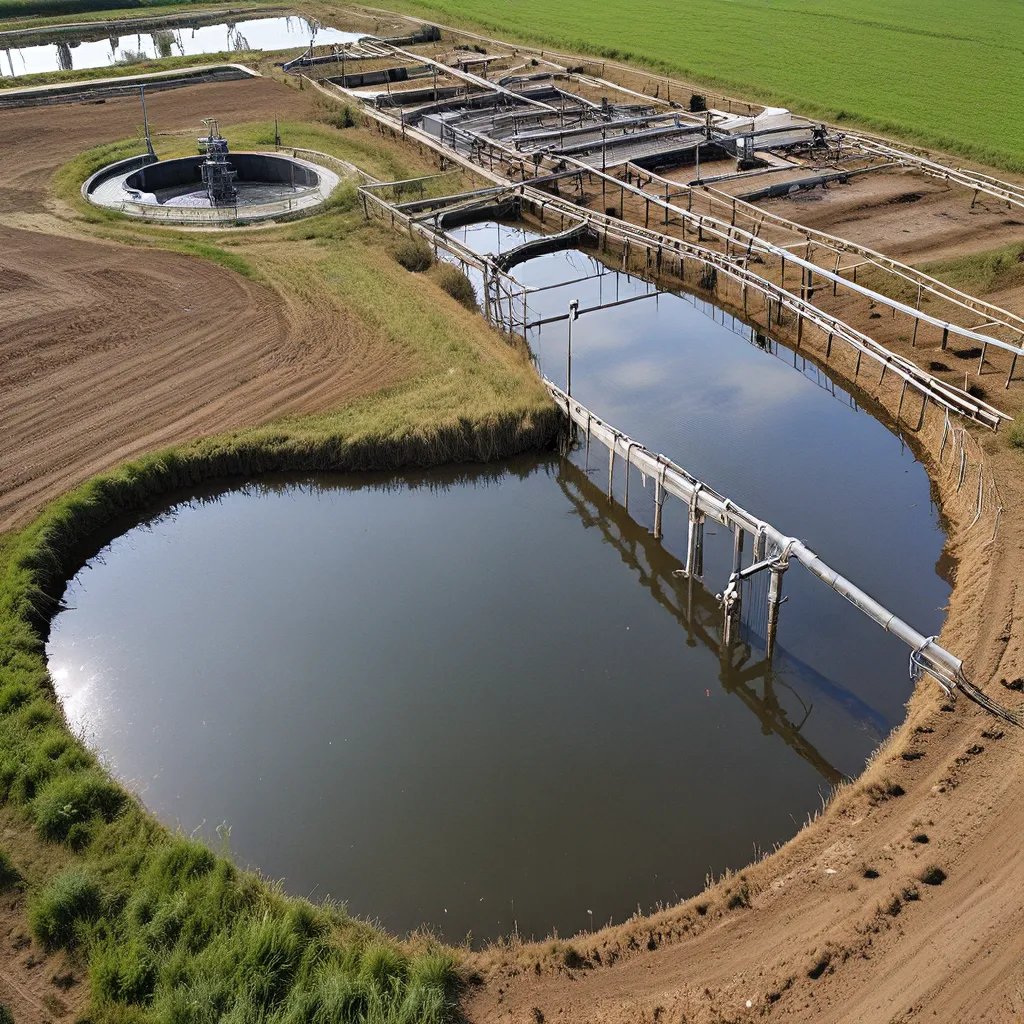
The world of waste management is undergoing a remarkable transformation, and at the heart of this revolution lies the promise of the bioeconomy. As we grapple with the pressing environmental challenges of our time, the symbiotic relationship between wastewater treatment and the production of valuable bioproducts and biofuels is emerging as a game-changer.
Embracing the Circular Economy
Gone are the days when wastewater was simply a burden to be disposed of. Today, we’re witnessing the rise of a circular economy – a system where waste is viewed as a valuable resource, waiting to be transformed into new and innovative products. This paradigm shift has opened up a world of possibilities, and the wastewater treatment industry is at the forefront of this exciting transition.
The Power of Bioproducts
One of the most captivating aspects of the bioeconomy is the untapped potential of bioproducts. These are the valuable substances that can be extracted from wastewater, ranging from bioplastics and biofuels to high-value chemicals and even biopharmaceuticals. Imagine turning something as mundane as sewage into a treasure trove of sustainable materials and fuels!
Bioplastics: The Eco-Friendly Alternative
Bioplastics, made from renewable and biodegradable sources like algae or microbial biomass, are emerging as a promising alternative to traditional petroleum-based plastics. These eco-friendly materials have the potential to reduce our reliance on fossil fuels and mitigate the growing problem of plastic waste. By incorporating bioplastics into our everyday products, we can take a significant step towards a more sustainable future.
Biofuels: Powering the Future
Another exciting frontier in the bioeconomy is the production of biofuels from wastewater. Through advanced treatment processes, the organic matter in wastewater can be converted into various types of biofuels, such as bioethanol, biodiesel, and even biogas. These renewable energy sources can be used to power vehicles, heat homes, and even generate electricity, reducing our reliance on fossil fuels and contributing to a greener, more sustainable energy landscape.
Alpha Wastewater, a leading provider of wastewater treatment services, is at the forefront of this transformation. By leveraging innovative technologies and expertise, they are helping municipalities and industries unlock the full potential of their wastewater, turning it into a valuable resource for the bioeconomy.
The Dual Benefits of Wastewater Treatment
Wastewater treatment is no longer just about cleaning and purifying water; it’s also about extracting valuable resources and creating new revenue streams. This dual purpose has significant implications for the way we approach waste management.
Improving Water Quality and Conservation
Firstly, effective wastewater treatment plays a crucial role in maintaining the health of our water bodies and ecosystems. By removing pollutants, pathogens, and other harmful substances, wastewater treatment ensures that the water discharged back into the environment is clean and safe. This, in turn, protects aquatic life, preserves drinking water sources, and supports the overall sustainability of our water resources.
Unlocking the Bioeconomy
Secondly, the bioeconomy aspect of wastewater treatment opens up new avenues for economic growth and environmental stewardship. By recovering and repurposing the valuable components of wastewater, such as nutrients, organic matter, and energy, we can create a virtuous cycle where waste becomes a source of renewable resources and revenue.
The Challenges and Opportunities
Of course, the transition to a bioeconomy-driven wastewater treatment system is not without its challenges. Technological advancements, regulatory frameworks, and public awareness all play a crucial role in the successful implementation of these innovative approaches.
Technological Advancements
Developing and scaling up the processes for extracting and refining bioproducts and biofuels from wastewater requires significant investments in research and development. However, the potential rewards are vast, as these technologies can transform the way we manage waste and create a more sustainable future.
Regulatory Frameworks
Policymakers and regulatory bodies must keep pace with the evolving bioeconomy landscape, ensuring that the necessary legal and financial incentives are in place to support the growth of this industry. Aligning regulations with the goals of the circular economy will be crucial in driving widespread adoption of these innovative practices.
Public Awareness and Acceptance
Lastly, educating the public about the benefits of the bioeconomy and the role of wastewater treatment in this transformation is essential. By fostering a greater understanding of the environmental and economic advantages, we can build a strong foundation of support for these sustainable solutions.
Embracing the Future of Wastewater Treatment
As we look to the future, the potential of the bioeconomy in the context of wastewater treatment is nothing short of inspiring. By unlocking the value embedded in our wastewater, we can pave the way for a more sustainable and prosperous tomorrow. It’s a future where waste is no longer a burden, but a valuable resource that can power our industries, fuel our vehicles, and shape the contours of a circular economy.
The journey ahead may have its challenges, but with visionary thinking, innovative technologies, and collaborative efforts, I’m confident that we can harness the power of the bioeconomy and transform the way we manage our waste. So let’s embrace this exciting evolution and write the next chapter in the story of wastewater treatment – a chapter that celebrates the power of transforming waste into wonder.